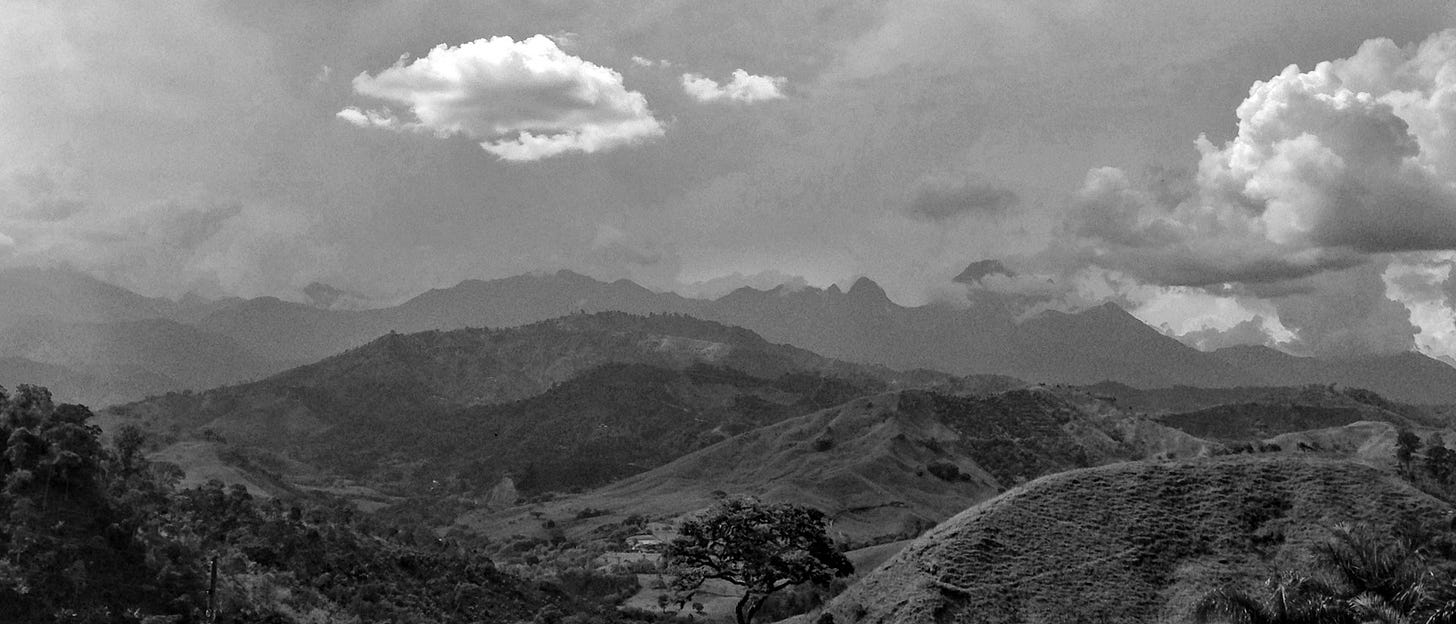Coffee News Roundup: Week Ending February 18th
This week, Uganda's reasons for leaving the International Coffee Agreement, Brazil has enough coffee reserves to meet demand (says Brazil) & Nestlé will raise prices despite coffee-fueled sales growth
What’s been going on in the world of coffee over the past week?
Glad you asked.
Uganda Blames Withdrawal From Coffee Body Agreement On Unfair Trade Terms - Via Reuters
Last week there was a brief story about Uganda’s withdrawal from the International Coffee Agreement (ICA), an international commodity agreement between coffee producing and consuming countries.
It didn’t have a lot of detail, simply stating the fact of the country’s withdrawal. Now, however, Uganda has made apparent the reason: unfair tariffs as well as restrictions on export of processed coffee to Europe and elsewhere, according to an announcement by the state-run Uganda Coffee Development Authority.
"Uganda needs unconditional market access that allows for export of value-added coffee, not only green coffee," the statement states. "The new coffee agreement should have increased focus on value addition with protracted programmes that aim at transferring value to the farm gate."
Uganda is the second largest exporter of coffee in Africa behind Ethiopia, and the world’s seventh largest producing country, with an estimated 5.95 million 60-kilo bags of coffee produced last year.
Overseen by the International Coffee Organization, the ICA has been signed by the majority of coffee producing countries and many consuming countries—with some notable exceptions. Guatemala left the agreement in 2020, citing lack of protections from the coffee price crisis that was then ravaging the industry, and the United States infamously quit in 2018 during the Trump administration.
Coffee Lovers Can Rest Assured Brazil Has Enough To Meet Demand - Via Bloomberg
Coffee stockpiles are at their lowest since the year 2000. You’ll already know this if you read last week’s Roundup, where we also learned that the reserves have been declining since September. But there’s still coffee, don’t worry about that. Plenty of coffee.
That’s according to the head of Cecafe, Brazil’s exporter group, anyway. “This is not a moment of high stockpiles, but they are enough to meet demand from local and global industries,” said Cecafe president Nicolas Rueda. Thanks to 2020’s bumper crop, “it was possible to pile up plenty of stocks.”
But, as Bloomberg notes, “how much coffee exactly is in Brazilian warehouses is a mystery.” There is very little transparency, with the latest figures from Brazil’s crop agency Conab dating back to March 2020—and of course a lot has happened since then.
What Rueda is more concerned with is logistics: Brazil exported 10% less coffee in January than the year previous, and shipping containers plus truck driver shortages are all combining to put upward pressure on coffee’s commodity price.
Coffee Is The Cup That Cheers Nestlé But Prices To Rise As Inflation Bites - Via The Times
This article quickly disappears behind a paywall, but the headline and the little that’s visible is really something.
Nestlé’s sales increased 7.5% in 2021, to more than £69 billion ($94 billion), boosted in no small part by Nespresso sales rising 8.8%, which the Times attributes to the rise in remote working. Sales of Starbucks-branded products also rose, by 17%.
In the Financial Times, which somehow isn’t paywalled for me, there’s a lot more detail, if you’re interested. Especially stuff about dividends increasing (for the 27th consecutive year), right next to the fun part: inflation means price increases!
“Prices to rise as inflation bites” is how the Times puts it in that headline. Net profit reached £13 billion, but we can’t have rising costs being borne by investors.
Read the full story here (paywalled).
Union Vote At Arizona Starbucks Put On Hold - Via CNN
The voting at a Starbucks location in Arizona was put on hold at the last minute after a legal challenge by the company.
Starbucks once again petitioned the National Labor Relations Board to review its request to have a single region-wide union vote rather than store-by-store—it tried a similar tactic in Buffalo, and was denied.
"It just slipped through our hands," barista Miranda Romero told AZ Central. "I feel like it's just another big union-busting tactic to delay the count."
More Headlines
First Speakers of Re:co Announced
Coffee Chains Starbucks, Tim Hortons Raise Prices in China
ILO and IWCA Join Partnership for Women Coffee Workers
Numerous Big Coffee Companies Invest in Digital Fingerprinting Startup ProfilePrint
CQI Launches Free Coffee Quality Training Program for Small Producers and Roasters
The Week In Coffee Unionizing
More and more Starbucks stores are announcing their intent to unionize—the number currently stands at 100 stores across 26 states, representing in excess of 2200 workers—but in Buffalo the company is allegedly trying to push out the leaders who helped organize the historic union drives.
According to More Perfect Union, multiple organizers in Buffalo have been warned that they could be fired in the coming weeks “as a result of policy shifts planned by Starbucks management,” which “appear to target several of the Starbucks workers who led the organizing drive at Buffalo’s Elmwood location” among other area leaders.
One notable location to join the movement is the flagship Reserve Roastery in Seattle, a week after the Reserve Roastery in New York City also announced. There are only six such stores worldwide, of which Seattle is the first—it’s also frequented by many of Starbucks’ higher-ups.
Meanwhile, workers at Great Lakes Coffee in Detroit, Michigan, have voted to unionize and are striking for better COVID protections and pay. The company’s Midtown location closed indefinitely last month due to an outbreak among staff, with nine of 15 employees testing positive.
Is Coffee Good For You?
There is evidence to suggest that caffeine reduces the risk of cardiovascular disease, but until now the mechanism behind this reduction hasn’t been clear. A new study looked at the effect of caffeine on the expression of two regulators of circulating low-density lipoprotein (LDL) cholesterol, what’s known as “bad” cholesterol. High levels of LDL cholesterol in the bloodstream are associated with an increased risk of cardiovascular disease.
“Just two to three average-sized cups of coffee per day contains enough caffeine to trigger a cascade effect, which reduces the levels of LDL cholesterol,” said Professor Richard Austin of McMaster University, senior author of the study.
Routine caffeine consumption has been linked to reduced blood levels of the PCSK9 protein, which in turn increases the liver’s ability to remove excess LDL cholesterol from the bloodstream.
“These findings now provide the underlying mechanism by which caffeine and its derivatives can mitigate the levels of blood PCSK9 and thereby reduce the risk of cardiovascular disease,” Austin continued.
So there you have it: a small but nonetheless positive note to end this Roundup. I’ll raise two to three average-sized cups of coffee to that.
What To Read
Wake Up And Smell The Coffee: The Agricultural Commodity Market Is Broken by Frank Giustra
Why The Starbucks Union Drive Matters For All Workers by Alex N. Press
Until next week, drink good coffee.






